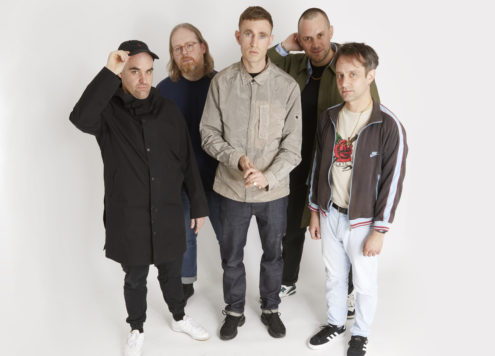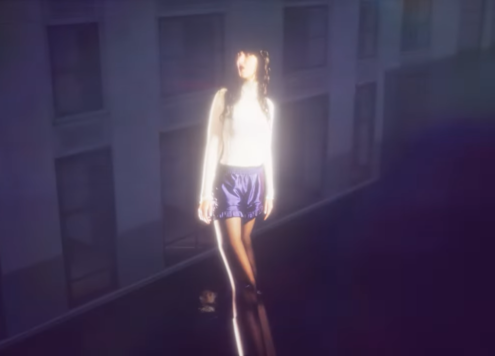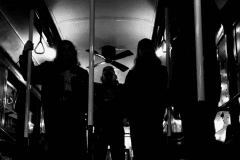With their incendiary second album, Blending, out in a month’s time – London’s High Vis return with the latest single drawn from the record, “Trauma Bonds”. Quite possibly Blending‘s emotional centerpiece, the melodic jangle and impassioned vocals of “Trauma Bonds” offer up an ultimately hopeful search for empathy and communication in the face of ongoing personal tragedy.
As front person Graham Sayle puts it, “‘Trauma Bonds’ was written after the news of another tragic suicide of one of our friends during lockdown. It forced us to reflect on how the death of young people had become so normalized within our group of friends that we had become numb to it. Friendships became Trauma Bonds and the gravity of these situations suppressed through toxic coping mechanisms. The song is a hopeful exploration into these feelings in an attempt to support each other through better communication and collective empathy.”
High Vis created their own signature sound of aggressive, gripping, artful punk that’s as tough as any hardcore record yet sonically opens beyond the parameters of any genre or scene. And as the title of their highly anticipated new album suggests, Blending is about bringing all these new strands and elements into what the band are about at their core to forge something entirely new. Alongside longstanding favorites such as Fugazi and Echo and The Bunnymen; Ride and even Flock Of Seagulls were shared reference points as the band worked on the album together.
Blending has a more specific meaning that links to Sayle’s lyrics too, he explains, “The message of the album is you’re not who you’re told you are. You’re not your class background. Whatever it is, you’re not that. Don’t resign yourself to thinking you can’t be this and you can’t be that.”
While Blending shows High Vis’s sound blossoming even further from their exemplary 2019 debut No Sense No Feeling, the album represents another leap forward lyrically, too. Talking frankly about poverty and class politics, Sayle’s lyrics have always addressed the downtrodden and discarded communities across Britain slipping below the waterline. This time around, Sayle’s lost none of that social consciousness, but he’s looked at himself and his own emotional landscape, and in the process created something that feels more universal, that reaches a hand-out to people and ultimately gives a message of hope.
Photo Courtesy: Simon Wellington










Social Media